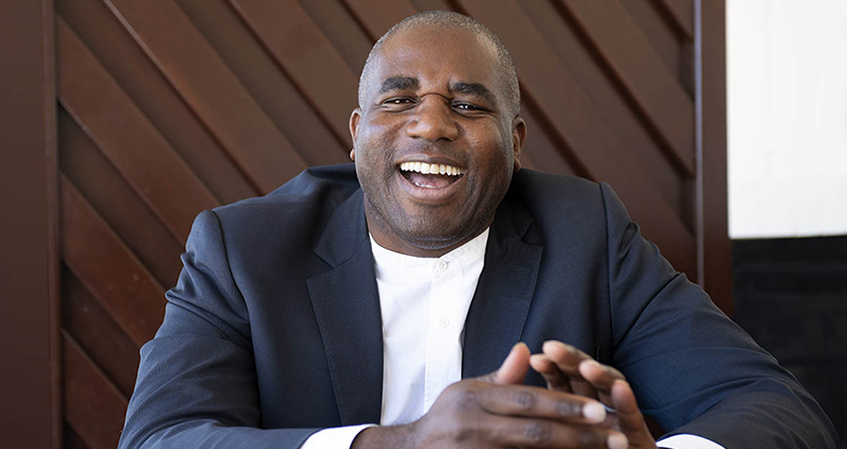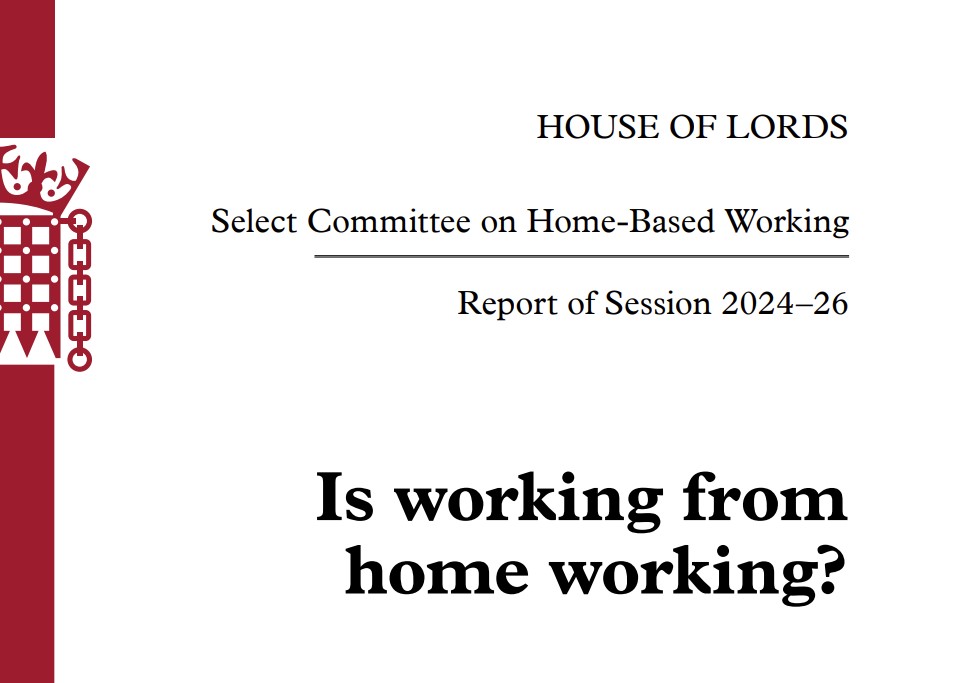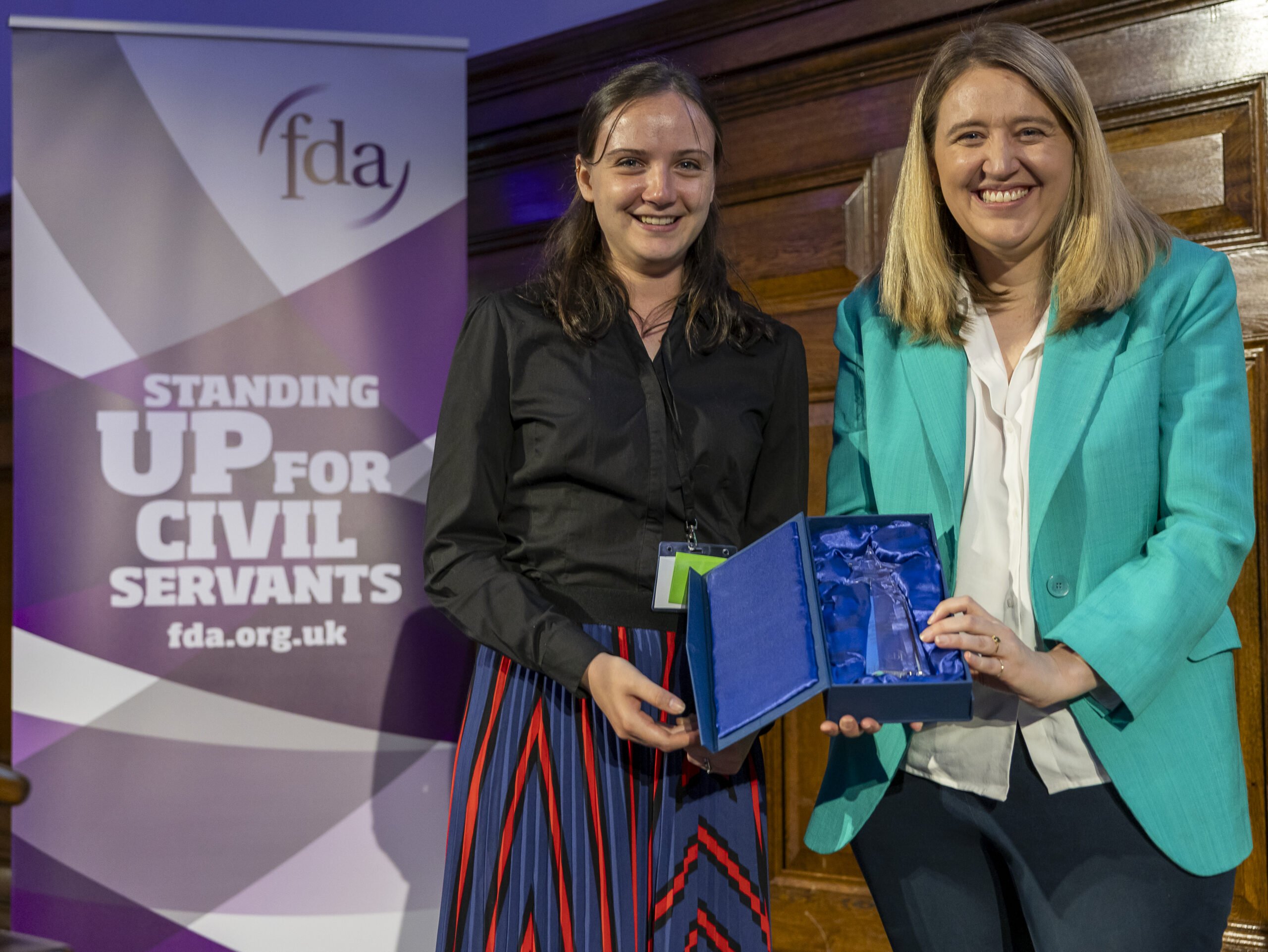Black History Month: In conversation with David Lammy

David Lammy MP, the Shadow Secretary of State for Justice, has joined FDA General Secretary Dave Penman and Hauwa Shehu, Chair of the CPS Staff Muslim Network for a discussion to mark Black History Month.
In a wide-ranging session, arranged by the FDA’s CPS section, Lammy spoke of his experiences growing up in Tottenham, his journey into parliament then government, and discussed the 2017 Lammy Review into racial discrimination in the criminal justice system. He also reflected on what the Black Lives Matter movement means to him and the work there is still to do to combat racism.
Speaking to members via Zoom, Lammy talked of growing up in the working class, ethnically-diverse Tottenham of the late 70s and early 80s, and the huge challenges faced by first generation immigrant children in schools at the time – including being prevented from sitting O-Levels: “On every level discrimination was happening.” He, however, was fortunate to get a lucky break, becoming a cathedral chorister in Peterborough. This environment allowed him to flourish academically and, inspired by a character from the TV series LA Law, he went to Harvard Law School and became a lawyer. However, when dealing with cases, he increasingly found himself asking “Why is this kid in prison? Why has this business gone bankrupt?” This lead him away from law and into politics.
Entering the House of Commons as a 27-year-old, he says he experienced “a kind of imposter syndrome”, and found the corridors of power daunting, having never even been to Parliament before being elected. Serving as a minister across a number of departments, he found it difficult to effect change, but was proud to work on important issues affecting his community, such as diabetes at the Department of Health and legal aid at the Ministry of Justice.
Having spent the years following the 2010 general election on the backbenches, campaigning on issues such as Brexit and Grenfell, Lammy was asked by David Cameron to undertake a review of the criminal justice system in 2016. He spoke highly of the civil servants who worked on the review and the advice and resources he had available, and was proud to be able to deliver a report that achieved cross-party consensus.
Questioned about the review’s findings in relation to the CPS, Lammy acknowledged that, relative to other parts of the justice system, the CPS was “in a different league”, with a diverse workforce, including at senior levels, and this was important in setting the tone in an organisation, and that there was a better peer approach to decision making. He pointed out that the CPS had long been an organisation where a black lawyer could find a place when that hadn’t been the case in other areas of the law. However, Lammy was keen to stress that while the organisation came out of the review fairly well, that was certainly “not an excuse to sit on your laurels.”
He also reflected on the Sylvia Denman Report of 2001, which had found the CPS to be institutionally racist. He thought this had been a massive catalyst for change which had provoked a lot of internal reflection, meaning the organisation had really faced up to a lot of challenges early on.
Thinking about the events of 2020, Lammy focussed on the frustration felt among the black community, particularly young people, about the “constant going round the wheel” of reviews and recommendations, without anything actually being taken forward. He, however, thinks the scale and depth of the response to the killing of George Floyd shows “there is now a serious appetite to move this dial forward”. Across organisations, he suggested, Diversity and Inclusion is now not just something for HR, but a top priority for Chief Executives.
Finally, when asked about the role that trade unions had played, and still had to play, in the fight against racism, Lammy said that trade unions “had been in the business of racial justice for years”, and still had a vital role to play in combatting discrimination.
Related News
-

Caring support: findings from the FDA’s 2025 carers’ survey
Five years have passed since the FDA last surveyed its members with caring responsibilities about the issues they face at work. FDA National Officer for Equality, Diversity, and Inclusion, Amelia Dowler, shares significant findings from our latest survey, and a preview of recommendations and guidance from the upcoming carers’ report.
-

Lords Committee report highlights lack of evidence behind civil service 60% office working mandate
A new report from the House of Lords Select Committee on Home-Based Working, which features evidence from the FDA, says the government should lead by example with good hybrid working practices within the civil service.
-

2025 Wendy Jones Equality Award winner: Chloé François-Oatway
Katherine Hutchinson speaks to the winner of the Wendy Jones Equality Award 2025, Chloé François-Oatway.